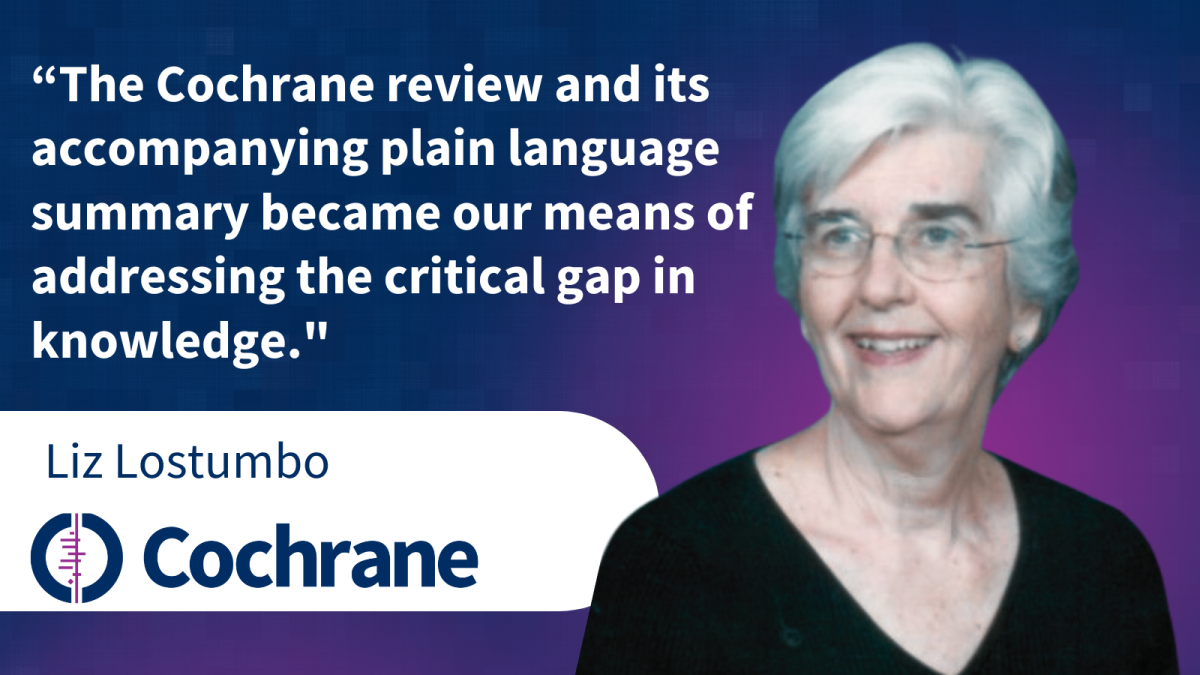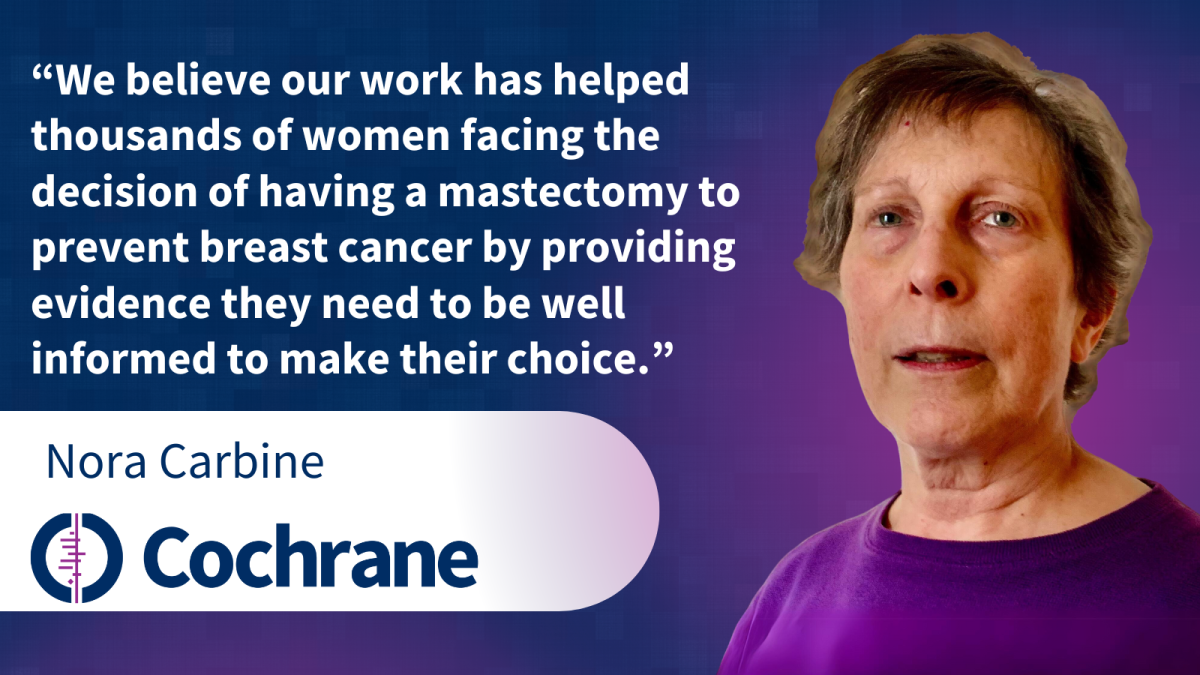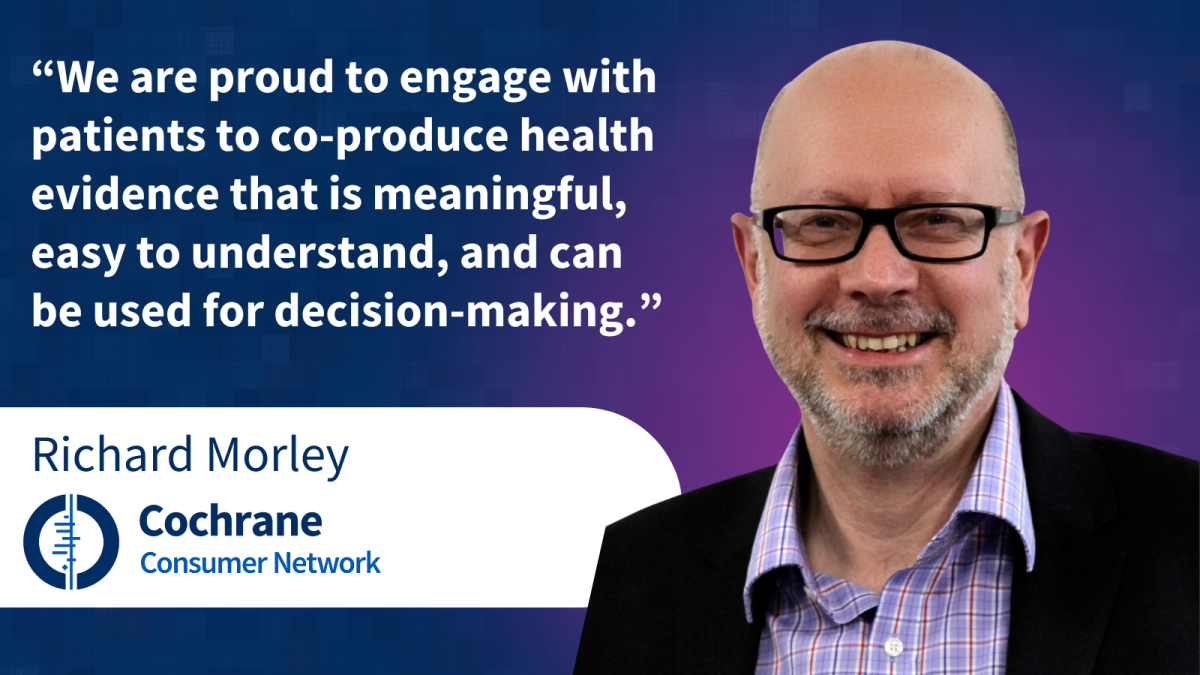
Cochrane is an international, not-for-profit network of clinicians, patients and carers, researchers, and policy-makers creating high-quality healthcare evidence synthesises. Cochrane has a long and rich history of collaborating with healthcare consumers and this is the story of what breast cancer patients experienced when contributing to a Cochrane Review.
In 1995, Nora Carbine and Liz Lostumbo, both former breast cancer patients, embarked on a transformative journey as attendees of the Leadership, Education, Advocacy, and Development (LEAD) program developed by the National Breast Cancer Coalition (US). Designed to equip patients with the necessary scientific and leadership essentials for becoming proactive advocates, this five-day initiative taught by notable scientists provided a platform for people with breast cancer to amplify their voices.
One of the founders of LEAD and a course teacher was Kay Dickerson MD, an epidemiologist and an active Cochrane member. Post-LEAD, Dr. Dickerson encouraged them to form a Journal Club, meeting monthly with her. Initially guided by Dr. Dickerson's article choices, the members eventually took the reins, presenting their findings on breast cancer research articles. Over a transformative two-year period, they developed their skills in scrutinizing research methods, assessing statistical validity, and distinguishing misinformation. Dr. Dickerson proposed to the group – would they be interested in leading on conducting a Cochrane systematic review on mastectomy to prevent breast cancer (prophylactic mastectomy)?
A determined group of seven breast cancer advocates undertook the challenge to provide accessible information on prophylactic mastectomy for both patients and physicians, emphasizing the importance of informed decision-making. Guided by Dr. Dickerson and Davina Ghersi at Cochrane, they submitted their plan of study (Protocol) to Cochrane in 2000. They would gather at each other’s houses after work or on a Saturday morning and go through article after article, debating which ones to include and which to exclude. Despite one of the original members and driving force, Annette Drummond, becoming seriously ill with a recurrence of breast cancer, other members dropping out, and the abundance of evidence they had to wade through, the Cochrane review published in 2004, four years after this remarkable journey started.
A unique feature of Cochrane reviews is that they are updated when new evidence is available. Classes in RevMan (Cochrane’s software for preparing and maintaining Cochrane and other systemic reviews) were taken and more people were added to the team, including an experienced reviewer. The first updated review was published in 2010.

“Actress Angelina Jolie revealing her family history and her procedures coupled with the increasing availability of DNA testing, thrust the topic of mastectomy for breast cancer prevention into the limelight," says Liz Lostumbo. “We worried that women facing the decision of whether to undergo a prophylactic mastectomy might only encounter anecdotes in the popular media. We were particularly concerned about the lack of discussion concerning the quality of life for patients after mastectomy. The Cochrane review and its accompanying plain language summary became our means of addressing the critical gap in knowledge."
For the third revision in 2018, they brought in more expertise and updated the wording, changing “prophylactic mastectomy” to “risk-reducing mastectomy”. The review is highly cited, has been made into a Cochrane Clinical Answer for clinicians, and has been included in three clinical guidelines. The plain language summary has been translated into 8 languages making it more accessible globally to patients making a decision and has been included in several Wikipedia articles.
Nora and Liz note that they will hand other future updates to authors who can break the review into parts that ask more concise questions and produce more high-value conclusions – some of this work is already underway.

“For us, the whole process of being the only group of patients to take on the responsibility of preparing a review and updating it was one of great satisfaction and pride,” says Nora Carbine. “We believe our work has helped thousands of women facing the decision of having a mastectomy to prevent breast cancer by providing evidence they need to be well informed to make their choice. We applaud Cochrane for giving us the opportunity and thank those who supported us in our endeavour.”

Cochrane is extremely proud of Nora and Liz and all our patient and advocate volunteers. “While the work of Nora and Liz is extraordinary, it embodies the spirit of what Cochrane is trying to achieve. We are proud to engage with patients to co-produce health evidence that is meaningful, easy to understand, and can be used for decision-making,” explains Richard Morley, Cochrane’s Consumer Engagement Officer. “The Cochrane Consumer Network has played a formal role since 1995 with over 2,000 members and Cochrane has a formal framework for involving patients, carers, and the public. While it’s likely most patients and caregivers aren’t as ambitious to author a Cochrane systematic review, we do hope this story is an inspiration for others to join our work.” From learning about health evidence and making informed health choices to volunteering to read over our plain language summaries on our volunteer hub Cochrane Engage, there are lots of ways you too can make a global impact on health!
